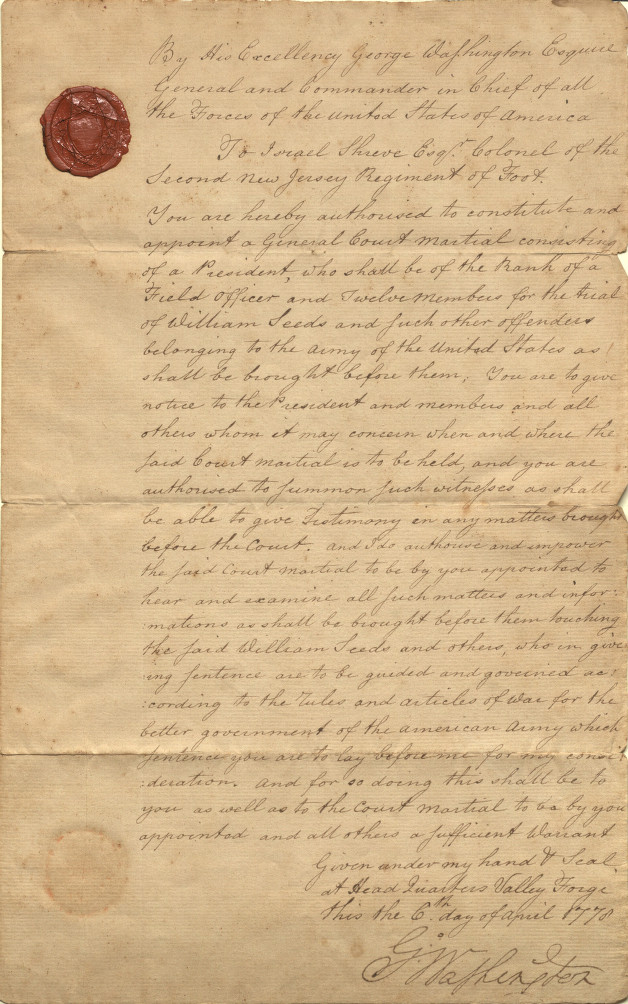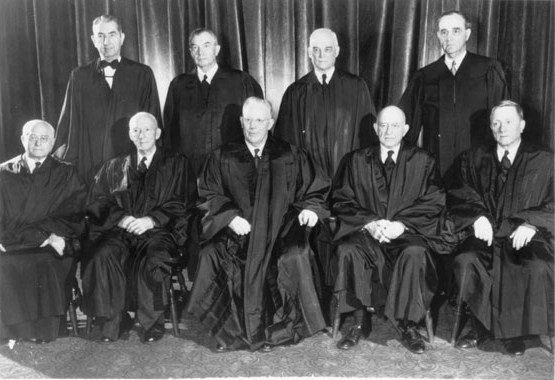|
Navy-Marine Corps Court Of Criminal Appeals
The Navy-Marine Corps Court of Criminal Appeals (NMCCA) is the intermediate appellate court for criminal convictions in the United States Navy and the Marine Corps. Courts-martial are conducted under the Uniform Code of Military Justice ( Title 10 of the United States Code §§ 801-946), and the Manual for Courts-Martial. If the trial results in a conviction, the case is reviewed by the convening authority (the person who referred the case for trial by court-martial). The convening authority has discretion to mitigate the findings and sentence. Review court If the sentence, as approved by the convening authority, includes death, a bad conduct or dishonorable discharge, dismissal of an officer, or confinement for one year or more, the case is reviewed by an intermediate court. For the Navy and Marine Corps, this is the Navy-Marine Corps Court of Criminal Appeals. Description The Navy-Marine Corps Court of Criminal Appeals (NMCCA) is located in Washington, D.C. in the Nav ... [...More Info...] [...Related Items...] OR: [Wikipedia] [Google] [Baidu] |
Washington Navy Yard
The Washington Navy Yard (WNY) is a ceremonial and administrative center for the United States Navy, located in the federal national capital city of Washington, D.C. (federal District of Columbia). It is the oldest shore establishment / base of the United States Navy, established 1799, situated along the north shore of the Anacostia River (Eastern Branch of the Potomac River) in the adjacent Navy Yard (Washington, D.C.), Navy Yard neighborhood of Southeast, Washington, D.C. Formerly operating as a shipyard since the end of the 18th century / beginning of the 19th century, and Weapon, ordnance plant, the yard currently serves as home to the Chief of Naval Operations (CNO), commanding the U.S. Navy, and is headquarters for the several military agencies and commands of: Naval Sea Systems Command, Naval Reactors, Naval Facilities Engineering Systems Command, Naval History and Heritage Command, Commander, Navy Installations Command, Navy Installations Command, the National Museum of ... [...More Info...] [...Related Items...] OR: [Wikipedia] [Google] [Baidu] |
United States
The United States of America (USA), also known as the United States (U.S.) or America, is a country primarily located in North America. It is a federal republic of 50 U.S. state, states and a federal capital district, Washington, D.C. The 48 contiguous states border Canada to the north and Mexico to the south, with the semi-exclave of Alaska in the northwest and the archipelago of Hawaii in the Pacific Ocean. The United States asserts sovereignty over five Territories of the United States, major island territories and United States Minor Outlying Islands, various uninhabited islands in Oceania and the Caribbean. It is a megadiverse country, with the world's List of countries and dependencies by area, third-largest land area and List of countries and dependencies by population, third-largest population, exceeding 340 million. Its three Metropolitan statistical areas by population, largest metropolitan areas are New York metropolitan area, New York, Greater Los Angeles, Los Angel ... [...More Info...] [...Related Items...] OR: [Wikipedia] [Google] [Baidu] |
United States Military Courts
Courts-martial of the United States are trials conducted by the Military of the United States, U.S. military or by state militaries. Most commonly, courts-martial are convened to try members of the U.S. military for violations of the Uniform Code of Military Justice (UCMJ). They can also be convened for other purposes, including military tribunals and the enforcement of martial law in an Military occupation, occupied territory. Federal courts-martial are governed by the rules of Criminal procedure, procedure and Evidence (law), evidence laid out in the Manual for Courts-Martial, which contains the Rules for Courts-Martial (RCM), Military Rules of Evidence, and other guidance. State courts-martial are governed according to the laws of the state concerned. The American Bar Association has issued a Model State Code of Military Justice, which has influenced the relevant laws and procedures in some states. Courts-martial are adversarial system, adversarial proceedings, as are all Unite ... [...More Info...] [...Related Items...] OR: [Wikipedia] [Google] [Baidu] |
Article I Tribunals
Federal tribunals in the United States are those tribunals established by the federal government of the United States for the purpose of resolving disputes involving or arising under federal laws, including questions about the constitutionality of such laws. Such tribunals include both Article III tribunals (federal courts) as well as adjudicative entities which are classified as Article I or Article IV tribunals. Some of the latter entities are also formally denominated as courts, but they do not enjoy certain protections afforded to Article III courts. These tribunals are described in reference to the article of the United States Constitution from which the tribunal's authority stems. The use of the term "tribunal" in this context as a blanket term to encompass both courts and other adjudicative entities comes from section 8 of Article I of the Constitution, which expressly grants Congress the power to constitute tribunals inferior to the Supreme Court of the United States. ... [...More Info...] [...Related Items...] OR: [Wikipedia] [Google] [Baidu] |
Coast Guard Court Of Criminal Appeals
The Coast Guard Court of Criminal Appeals (CGCCA) is the intermediate appellate court for criminal convictions in the U.S. Coast Guard. It is located in Washington, DC. Congress established the Court under Article 66, Uniform Code of Military Justice (UCMJ), 10 United States Code §866. The Court is currently composed of nine appellate military judges, organized in panels of three for consideration of cases. All but the Chief Judge and one other full-time judge have other primary duties, so that their service on the Court constitutes a collateral (part-time) duty. Jurisdiction Review of courts-martial In general, the Court reviews and acts on the records by affirming, reversing, or modifying in part the findings or sentence in each case of trial by court-martial before it. It has jurisdiction over any court-martial for which there has been a finding of guilty. After CGCCA review, the next level of appeal is to the United States Court of Appeals for the Armed Forces. Wri ... [...More Info...] [...Related Items...] OR: [Wikipedia] [Google] [Baidu] |
Air Force Court Of Criminal Appeals
The Air Force Court of Criminal Appeals (AFCCA) is an independent appellate judicial body authorized by Congress and established by the Judge Advocate General of the Air Force pursuant to the exclusive authority under (a). The Court hears and decides appeals of United States Air Force court-martial convictions and appeals '' pendente lite''. Its appellate judges are assigned to the Court by The Judge Advocate General. The Judge Advocate General instructs court-martial convening authorities to take action in accordance with the Court's decisions. The Air Force Court of Criminal Appeals is located at Andrews Air Force Base in Prince George's County, Maryland. Jurisdiction The court conducts mandatory review of all courts-martial of Air Force members referred to the court (unless waived by the appellant) pursuant to Articles 62, 66, 69, and 73 of the Uniform Code of Military Justice, and, when necessary in furtherance of its jurisdiction, reviews all petitions for extraordin ... [...More Info...] [...Related Items...] OR: [Wikipedia] [Google] [Baidu] |
Army Court Of Criminal Appeals
In the United States military, the Army Court of Criminal Appeals (ACCA) is an appellate court that reviews certain court martial convictions of Army personnel. Jurisdiction In the United States, courts-martial are conducted under the Uniform Code of Military Justice (UCMJ), 10 U.S.C. §§ 801–946, and the ''Manual for Courts-Martial''. If the trial results in a conviction, the case is reviewed by the convening authority – the person who referred the case for trial by court-martial. The convening authority has discretion to mitigate the findings and sentence. If the sentence, as approved by the convening authority, includes death, a bad-conduct discharge, a dishonorable discharge, dismissal of an officer, or confinement for one year or more, the case is reviewed by an intermediate court. There are four such courts – the Army Court of Criminal Appeals, the Navy-Marine Corps Court of Criminal Appeals, the Air Force Court of Criminal Appeals, and the Coast Guard Court of ... [...More Info...] [...Related Items...] OR: [Wikipedia] [Google] [Baidu] |
Bluebook
''The Bluebook: A Uniform System of Citation'' is a style guide that prescribes the most widely used legal citation system in the United States. It is taught and used at a majority of Law school in the United States, law schools in the United States and is also used in a majority of United States federal courts, federal courts. Legal publishers also use several "house" citation styles in their works. ''The Bluebook'' is compiled by the ''Harvard Law Review'', ''Columbia Law Review'', ''Yale Law Journal'', and ''University of Pennsylvania Law Review''. Currently, it is in its 22nd edition (published May 2025). Its name was first used for the 6th edition (1939). Opinions have differed regarding its origins at Yale and Harvard Law Schools, with the latter long claiming credit.Liptak, Ada"Yale Finds Error in Legal Stylebook: Harvard Did Not Create It"''The New York Times'', December 7, 2015. Retrieved February 21, 2024. The Supreme Court of the United States, Supreme Court uses it ... [...More Info...] [...Related Items...] OR: [Wikipedia] [Google] [Baidu] |
Binding Precedent
Precedent is a judicial decision that serves as an authority for courts when deciding subsequent identical or similar cases. Fundamental to common law legal systems, precedent operates under the principle of ''stare decisis'' ("to stand by things decided"), where past judicial decisions serve as case law to guide future rulings, thus promoting consistency and predictability. Precedent is a defining feature that sets common law systems apart from civil law systems. In common law, precedent can either be something courts must follow (binding) or something they can consider but do not have to follow (persuasive). Civil law systems, in contrast, are characterized by comprehensive codes and detailed statutes, with no emphasis on precedent, and where judges primarily focus on fact-finding and applying codified law. Courts in common law systems rely heavily on case law, which refers to the collection of precedents and legal principles established by previous judicial decisions on s ... [...More Info...] [...Related Items...] OR: [Wikipedia] [Google] [Baidu] |
Black's Law Dictionary
''Black's Law Dictionary'' is the most frequently used legal dictionary in the United States. Henry Campbell Black (1860–1927) was the author of the first two editions of the dictionary. History The first edition was published in 1891 by West Publishing, with the full title ''A Dictionary of Law: containing definitions of the terms and phrases of American and English jurisprudence, ancient and modern, including the principal terms of international constitutional and commercial law, with a collection of legal maxims and numerous select titles from the civil law and other foreign systems''. A second edition was published in 1910 as ''A Law Dictionary''. Black died in 1927 and future editions were titled ''Black's Law Dictionary''. The sixth and earlier editions of the book additionally provided case citations for the term cited, which was viewed by lawyers as its most useful feature, providing a useful starting point with leading cases. The development of the Internet made lega ... [...More Info...] [...Related Items...] OR: [Wikipedia] [Google] [Baidu] |
Habeas Corpus
''Habeas corpus'' (; from Medieval Latin, ) is a legal procedure invoking the jurisdiction of a court to review the unlawful detention or imprisonment of an individual, and request the individual's custodian (usually a prison official) to bring the prisoner to court, to determine whether their detention is lawful. ''Habeas corpus'' is generally enforced via writ, and accordingly referred to as a writ of ''habeas corpus''. The writ of ''habeas corpus'' is one of what are called the "extraordinary", "common law", or " prerogative writs", which were historically issued by the English courts in the name of the monarch to control inferior courts and public authorities within the kingdom. The writ was a legal mechanism that allowed a court to exercise jurisdiction and guarantee the rights of all the Crown's subjects against arbitrary arrest and detention. At common law the burden was usually on the official to prove that a detention was authorized. ''Habeas corpus'' has cert ... [...More Info...] [...Related Items...] OR: [Wikipedia] [Google] [Baidu] |
Error Coram Nobis
A writ of ''coram nobis'' (also writ of error ''coram nobis'', writ of ''coram vobis'', or writ of error ''coram vobis'') is a legal order allowing a court to correct its original judgment upon discovery of a fundamental error that did not appear in the records of the original judgment's proceedings and that would have prevented the judgment from being pronounced. ''Google Scholar'' In the United Kingdom, the common law writ is superseded by the Common Law Procedure Act 1852 ( 15 & 16 Vict. c. 76) and the Criminal Appeal Act 1907 ( 7 Edw. 7. c. 23). The writ survives in the United States in federal courts, in the courts of sixteen states, and the District of Columbia courts. Each state has its own ''coram nobis'' procedures. A writ of coram nobis can be granted only by the court where the original judgment was entered, so those seeking to correct a judgment must understand the criteria required for that jurisdiction. Terminology A writ is an official written command, while ... [...More Info...] [...Related Items...] OR: [Wikipedia] [Google] [Baidu] |


